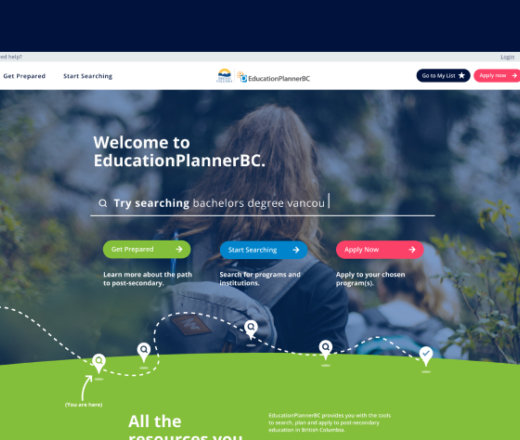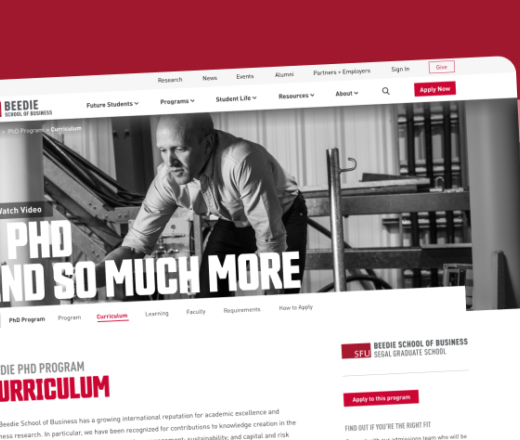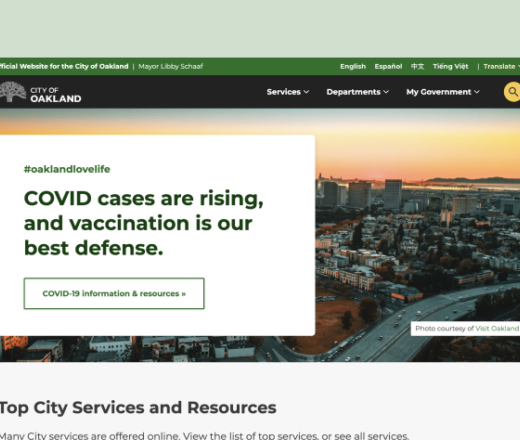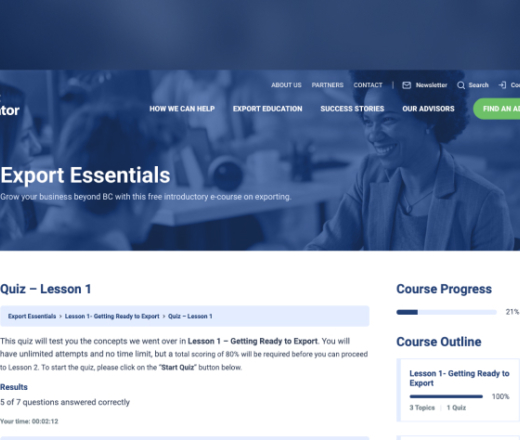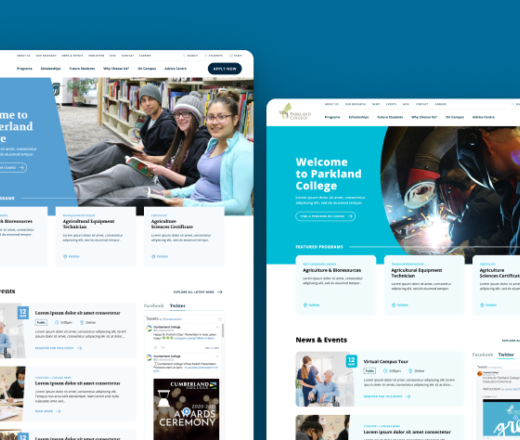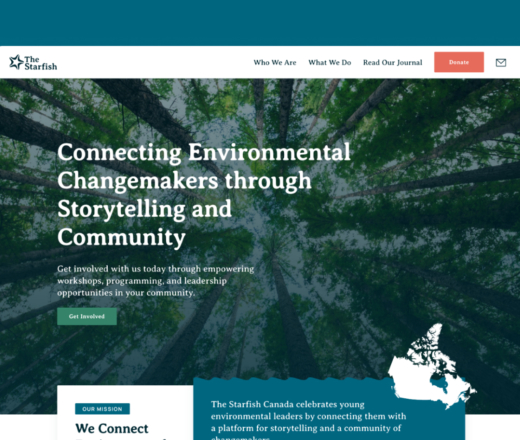I never touched web development because it's an insanely deep topic. Even after a developer learns the skills needed to become employable, it's full-on lifelong learning. Since I love marketing AND have a weirdly obsessive personality when I latch onto a new skill, I never stepped foot into that world. Though if the robots take over my job, maybe I'll go to Lighthouse Labs and take that up.
PR has always seemed like something I could possibly excel at, but again - it's a discipline that takes a long time to become great at. It's a lane switch. So while I know enough to place a press release, evaluate PR professionals for partnerships on behalf of our clients, and maybe do some cold outreach on my own - I'm not going to call it a core skill set. That's why we partner with pros.
SEO, on the other hand, is different. As a marketer, it always felt like Pandora's box. Like I was going to have to dive into a rabbit hole of learning before I could even jump into beginner conversations. But I also knew it was a necessary 'next step' in my career. My lack of basic knowledge could be holding me back, and could even mean that I was making incorrect choices when working on Goat's digital properties. (I was).
Ok, so if you feel like you might need to take a cold shower before jumping into SEO, this post is for you. It attempts to do nothing more than make you aware of some of the myths I've come across. I hope that you can skip the heartbreak of unlearning bad SEO advice. I'll also provide a ton of resources, so that's nice.
Myth #1: How long does SEO take? It's a side-of-your-desk activity.
(Forgive the awkward title there - it will pay off near the end).
I'm not sure how many marketers live with this myth, but I know how many business owners like it. Probably because it's convenient. When SEO lives out in the ether as soundbites you've overheard, headlines in an article you skimmed, or something taught to you by someone who meant well but didn't fully grasp the topic, this seems to come up.
SEO is a lot of work.
I bought into this myth because I didn't understand that SEO was a multi-discipline undertaking. This article does a great job of breaking down the three core disciplines of SEO: On-Page SEO, Technical SEO, and Off-Page SEO. If you don't want to read that, I'll drop in three very simple bullet points.
- On-Page SEO is about creating high-quality content that Google can read which lines up with the intent of your searchers. Here's a great checklist if you want to get really in-depth. It should be noted that this section's title was based on keyword research. It was originally "Myth #1: SEO is a side-of-the-desk activity", but it seems that "how long does SEO take?" may be a winnable keyword here. Even that bit of research added 10ish minutes. For one sub-headline.
- Technical SEO is about making sure your site adheres to Google standards for structure, speed, and readability.
- Off-Page SEO is about generating relevant backlinks that signal to Google/others that your content and/or domain may be trustworthy and of value. We sometimes call this 'building reputation' or 'building authority'.
Getting all of these things right takes time. I can't estimate how much, but the fact that most businesses serious about SEO have full-time teams should be telling.
The other thing to remember is that ranking in any meaningful way takes time... like months. It's not an overnight activity. You don't create an article or update a page and have it appear on page 1 of search results the next day. On top of that, the data below suggests that it’s even harder for newer sites. Getting onto page 1 of search results can take up to two full years. Yikes!
You’ll notice something called Domain Rank (DR) in the graph below. This is a metric generated by SEO tools like ahrefs that estimates the overall SEO ‘strength’ of a particular site. I could write a whole article on this topic, but for those of you interested, here's a good place to start
So not only is SEO a larger task than many might believe, it's a long game where you should expect to invest time and energy while waiting for a payoff.
Key takeaway: when someone asks if you can 'add SEO to your to-dos', send them that link and ask what you should remove from your workload in order to dive in properly.
Myth #2: "Just write good content and people will find it".
Let’s go back in time for a moment. The year is 2010. Time Magazines names Facebook’s Founder & CEO, Mark Zuckerburg as Person of the Year, Lady Gaga wore a dress made entirely of meat to the MTV Video Music Awards, and we’re all obsessed with Zombies (remember The Walking Dead?). We also haven’t jumped on the 'storytelling is everything' bandwagon yet. We’re still paying our respects to the king – content.
Remember the phrase “Content is King”?
While that wasn't a lie, and great content still matters today, it was a phrase tossed around without any further explanation. The underlying belief, as those I trusted explained it to me, was that you could just write some content and people would find it. There was no mention of keywords. No mention of search intent. There was no mention of the myriad, sometimes mysterious, factors that search engines use to decide what shows up and what doesn't. So I'd write content or shoot a video, I'd post it – and then I'd wait.
Sometimes the content piece would rank for a keyword or two, but usually it wouldn't. There are content pieces I've created that are, in my opinion, in-depth, valuable, and beautiful. But for whatever reason, whether it’s how the client used that content, how their site is structured, competition, or late changes to keywords - those content pieces don't drive organic traffic.
Key takeaway: spend some time learning what makes Google tick. That way, you can make knowledge-driven choices and approach content from a strategic level, rather than just create it as a knee-jerk reaction or pet project. Time is valuable. Setting expectations with the people asking you to deliver results is better than living in fear of those people discovering you did something that won't work (he said, from experience).
Myth #3: "All content is SEO content".
Like any marketing tactic, SEO should fit into your overall strategy.
As we learned in Myth #1, properly turning an idea into SEO-friendly, perfectly-structured, keyword-researched content takes time. In my humble opinion as a strategist, not all content needs to rank to be valuable to your business.
Here's an example: I wrote a content piece called Balancing Culture and Capitalism: How Storytelling and Brand Can Help Indigenous Entrepreneurs. Guess what? It doesn't matter if that article ever ranks. That's not its purpose in our ecosystem.
Its purpose is to show our subject matter curiosity, expertise, and awareness of a problem that's not easy to solve. Since we sometimes work with businesses or organizations that affect, or are affected by, First Nations groups, we decided to talk about what we've learned from working with these groups. If we are in discussion with a potential client, they might ask 'how do you deal with Indigenous cultural issues when creating a marketing plan?' We can send them a link to this piece. It shows that we are genuinely curious about Indigenous issues, have put thought into the problem, and are willing to ask questions of experts to further our knowledge as needed.
If someone finds the article through a Google search, that's great. But that piece works better for social media sharing and as a discussion point with potential clients. That's its job.
Additionally, this can lighten your content team's need to obsess over SEO-friendly headlines. Look at the sub-headline for SEO Myth #1, and look at the sub-headline for SEO Myth #3. The latter is natural and readable and may elicit an emotional response in the reader because they've had that same thought. The prior is a bit uglier and more clunky. I did that on purpose to drive this point home.
Key takeaway: think about where the content you're writing fits into your ecosystem. How will you get it out to the world? Paid ads? Social media? Partners sharing? These should affect how you write content because the less ranking organically matters for a piece, the more you can work on emotionally engaging and clever headlines that search engines might not appreciate.
---
Thanks for reading! Questions? Myth you'd like added? Want to talk? Email [email protected].

